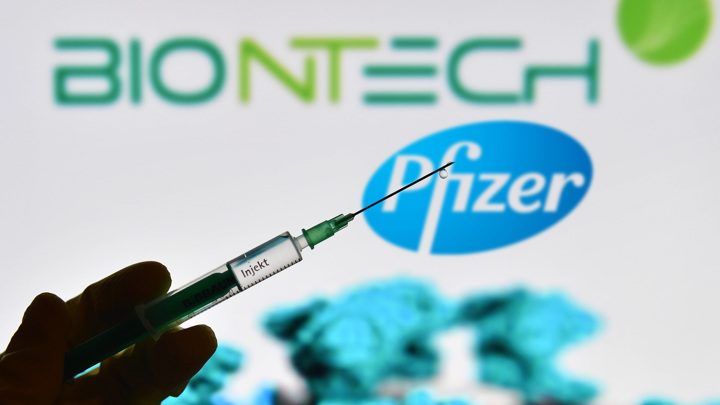Central Asia’s largest country has signed a preliminary agreement with Pfizer to acquire its COVID-19 vaccine developed jointly with its partner BioNTech, Kazakhstan’s health ministry announced this week.
“Today we signed a non-disclosure agreement with Pfizer, and we are ready to deal with the supplies of these vaccines on the territory of Kazakhstan by issuing special permits,” Marat Shoranov, the country’s vice minister of healthcare, said on December 28, according to a report by Kazinform.
Everything will depend on the production capacity and the company's ability to supply this vaccine to Kazakhstan, according to Shoranov.
Tozinameran, commonly known as the Pfizer–BioNTech COVID-19 vaccine, is both the first COVID-19 vaccine to be authorized by a stringent regulatory authority for emergency use and the first cleared for regular use. Trials of the vaccine began in April 2020 and by November, the vaccine had been tested on more than 40,000 people. So far, Pfizer has advanced purchase agreements of about $3 billion for providing a licensed vaccine in the United States, European Union, United Kingdom, Japan, Canada, Peru, and Mexico.
Distribution and storage of the vaccine is a logistics challenge because it needs to be stored at temperatures between −80 and −60 °C, until hours before vaccination. At the same time, the vaccine developed by Pfizer and BioNTech will not come cheaply — for example, the U.S. government has paid Pfizer and BioNTech $39 per dose for the first 100 million doses.
“In addition to strict requirements for transportation and storage (up to -70), [Pfizer] has a distinctive cost. It is up to two times more expensive even than the same vaccine produced in the Russian Federation,” Shoranov said on December 28.
Earlier this month, Kazakhstan launched local production of “Sputnik V” — a Russian-made vaccine against COVID-19 developed by the Gamaleya Research Institute of Epidemiology and Microbiology. The initiative followed an agreement signed this summer by the presidents of the two neighboring countries.
Mass vaccination with “Sputnik V” in Kazakhstan is expected to begin in February 2021. The first to get a non-mandatory vaccination will be healthcare workers, teachers, students, law enforcement officers, the staff of healthcare and social institutions, as well as at-risk citizens.
More than 156,000 people have tested positive for the coronavirus in Kazakhstan since the pandemic began. The nation reported more than 2,250 deaths from COVID-19, while more than 143,000 have recovered.
Health officials warned that the situation remains unstable in what is Central Asia’s largest country. Under the system, regions of the country are divided into various zones — red, yellow, or green — depending on local disease activity.
“As of December 28, the whole country moved from a low-risk zone to a moderate-risk zone — from green to yellow,” the country’s vice minister of healthcare said.
Earlier this month, the government of neighboring Turkmenistan expressed interest in purchasing the Russian-made vaccine against COVID-19.
Turkmenistan, which is considered Central Asia’s third-largest economy behind Kazakhstan and Uzbekistan, has a population of slightly more than 6 million people. The government officials in Ashgabat still insist the country does not have COVID-19 cases.







 The Islamic holy month of fasting, Ramadan comes to an end this week with the celebration of a joyous festival called Eid (meaning “festival” in Ar...
The Islamic holy month of fasting, Ramadan comes to an end this week with the celebration of a joyous festival called Eid (meaning “festival” in Ar...
 Iran's senior military leaders described the drone and missile attack on Israel on April 14 night as “successful".
Iran's senior military leaders described the drone and missile attack on Israel on April 14 night as “successful".
 Azerbaijan officially unveiled the logo for the upcoming 29th session of the Conference of the Parties to the United Nations Framework Convention o...
Azerbaijan officially unveiled the logo for the upcoming 29th session of the Conference of the Parties to the United Nations Framework Convention o...
 Iranian President Ebrahim Raisi warned Israel that it would face a "real and extensive" response if it makes any "mistake" following Tehran’s missi...
Iranian President Ebrahim Raisi warned Israel that it would face a "real and extensive" response if it makes any "mistake" following Tehran’s missi...



